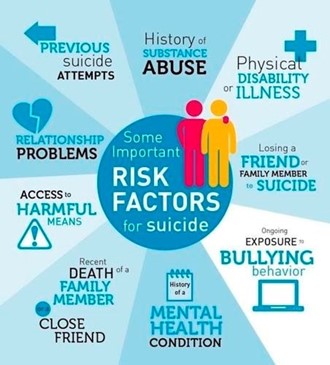A patient experiences an episode of severe anxiety. Of these medications in the patient's medical record. which is most appropriate to administer as an as-needed (PRN) anxiolytic medication?
Select one:
clonazepam (Klonopin)
amitriptyline (Elavil)
olanzapine (Zyprexa)
escitalopram (Lexapro)
The Correct Answer is A
Clonazepam is a benzodiazepine medication that acts quickly to reduce anxiety and promote relaxation. It is commonly used as a PRN medication for acute anxiety episodes.
Amitriptyline (Elavil) is a tricyclic antidepressant that is not typically used as an as-needed anxiolytic medication due to its slow onset of action and potential for side effects.
Olanzapine (Zyprexa) is an atypical antipsychotic medication that can be used to treat anxiety in certain cases, but it is not typically used as a PRN medication for acute anxiety episodes.
Escitalopram (Lexapro) is a selective serotonin reuptake inhibitor (SSRI) antidepressant that is not typically used as an as-needed anxiolytic medication due to its slow onset of action. It is usually taken on a daily basis to provide ongoing anxiety relief.

Nursing Test Bank
Naxlex Comprehensive Predictor Exams
Related Questions
Correct Answer is A
Explanation
Lorazepam belongs to a class of drugs called benzodiazepines, which are central nervous system (CNS) depressants.
Taking other CNS depressants such as opioids or sedatives along with lorazepam can lead to increased sedation, respiratory depression, and other serious side effects. It is crucial for patients to avoid these medications while taking lorazepam.
Reporting insomnia is important, but it is not the most critical teaching for this medication. Eating a tyramine-free diet is not relevant to lorazepam use.
Adjusting the dose and frequency based on anxiety level is not recommended as it can lead to misuse or dependence on the medication. It is important to take lorazepam only as prescribed by a healthcare provider.

Correct Answer is ["A","B","C","F","H"]
Explanation
a. Substance abuse disorder
b. Schizophrenia
c. Age greater than 55 years old
f. Male gender
h. Previous suicide attempt.
Option a. Substance abuse disorder can increase the risk of suicide because it can exacerbate underlying mental health conditions and impair judgment.
Option b. Schizophrenia is a mental health condition that can increase the risk of suicide due to symptoms such as delusions and hallucinations.
Option c. Age greater than 55 years old is a risk factor for suicide because older adults may experience social isolation, chronic health conditions, and loss of independence.
Option f. Male gender is a risk factor for suicide because men are more likely to die by suicide than women. Option h. Previous suicide attempt is a strong predictor of future suicide attempts and completed suicides. Option d. Female gender is not a known risk factor for suicide.
Option e. Being currently married is not a known risk factor for suicide. Option g. Having a bachelor’s degree is not a known risk factor for suicide.

Whether you are a student looking to ace your exams or a practicing nurse seeking to enhance your expertise , our nursing education contents will empower you with the confidence and competence to make a difference in the lives of patients and become a respected leader in the healthcare field.
Visit Naxlex, invest in your future and unlock endless possibilities with our unparalleled nursing education contents today
Report Wrong Answer on the Current Question
Do you disagree with the answer? If yes, what is your expected answer? Explain.
Kindly be descriptive with the issue you are facing.
